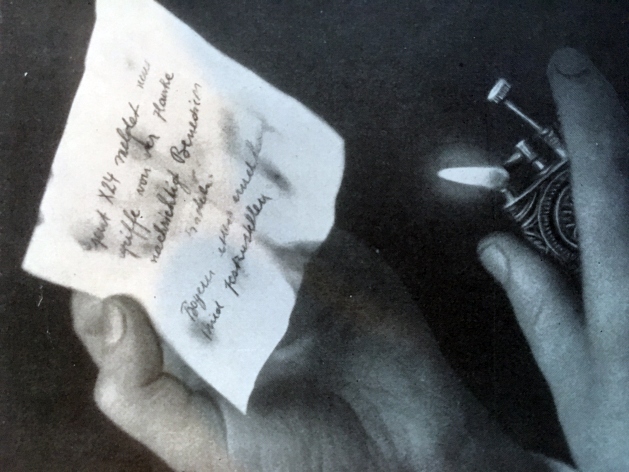During World War One, the occupation and administration of foreign territories developed as a task hitherto unknown to European militaries in form, scope and duration. Due to the operational development between 1914 and 1918, occupation became a task for the German army in particular. In the occupied territories, soldiers encountered civilians of the enemy warring powers and vice versa. The zones of occupation became areas for rest and recreation for the forces and an economic reservoir to be exploited in a totalizing conflict. Military oppression, some (limited) forms of resistance and collaboration and covert operations by the Allied military and intelligence services turned the territories occupied by the German armies into a space where the enforcement of the laws of war was challenged regularly and in various and sometimes violent ways.
Recent scholarship has highlighted the emergence of a particular “Culture of the Occupied” (James E. Connolly), at least in Northern France. The workshop seizes this suggestion. It examines the interdependency of internal and external security in Belgium and France but moves the focus from the occupied towards the occupiers.
Program
12.00
Prof. Dr. Sönke Neitzel (Potsdam)
Opening Remarks
12.15
Prof. Dr. Emmanuel Debruyne (Louvain-la-Neuve) / Dr. habil. Markus Pöhlmann (Potsdam)
Introduction
12.30
Dr. Jonathan E. Gumz (Birmingham)
Reconsidering the Late 19th Century's Approach to Occupation
13.00
Dr. James E. Connolly (London)
The Culture of the Occupied and Surveillance: Some Reflections
13.30
Dr. habil. Markus Pöhlmann (Potsdam)
Counterintelligence and the German Army
14.00
Discussion
14.30
Coffee Break
15.00
Prof. Dr. Emmanuel Debruyne (Louvain-la-Neuve)
A Good Job? Measuring the Efficiency of the German Secret Police by its Impact on the Intelligence Networks
15.30
Élise Rezsöhazy, MA (Louvain-la-Neuve)
The Officers of the Geheime Feldpolizei as a Social Group: Belgium and France, 1914-18
16.00
Dr. Florian Altenhöner (Berlin)
Vom Krieg zum Nachkrieg: Militärische Nachrichtendienste und ihr Blick nach Innen, 1918/19
16.30
Prof. Dr. Pieter Lagrou (Bruxelles)
Ramdohr Trial, June 1921: The Modus Operandi of the Geheime Feldpolizei under Question
17.00
Discussion
17.30
Book Presentation: Emmanuel Debruyne, « Femmes à Boches ». Occupation du corps féminin dans la France et la Belgique de la Grande Guerre (Paris, Les Belles Lettres, 2018).
18.30
End of the workshop
The workshop is co-funded by the Arbeitskreis Militärgeschichte e.V., the Chair for Militärgeschichte/Kulturgeschichte der Gewalt at Potsdam University and the Laboratoire de Recherche Historique at Université catholique de Louvain.
Conveners
Emmanuel Debruyne (Louvain-la-Neuve) / Markus Pöhlmann (Potsdam)
Attendance is free of charge but due to limited space participants are invited to register at Julius Becker (julbecke@uni-potsdam.de) before 10 June 2019.
Venue
Universität Potsdam, Am Neuen Palais 10, 14469 Potsdam, House 8, Room 56

